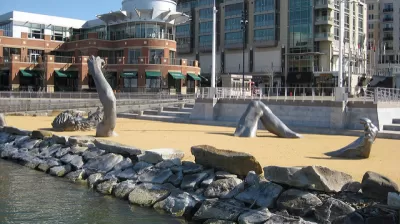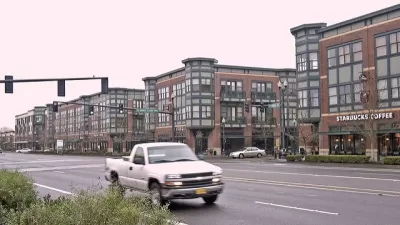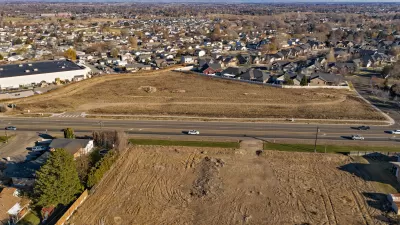A rezoning plan in Prince George's County, Maryland is receiving strong criticism from residents who worry redevelopment without tenant protections will lead to displacement.

"Lawmakers in Prince George’s County, Maryland, unanimously approved a zoning plan Monday that could entice more development to Langley Park," reports Ally Schweitzer for DCist. But community groups worry that the Countywide Sectional Map Amendment could displace the thousands of low-income immigrant households living in the area.
CASA de Maryland, an immigrant advocacy group, is calling for "a zoning process that values community voices over those of developers," saying that the current plan will push immigrant families out of affordable housing as more luxury developments spring up. Meanwhile, the county is calling the plan an important step forward and says it is working on other affordable housing initiatives outside of the zoning code.
The new zoning plan is designed to align more closely with modern development standards in anticipation of two new light rail lines coming to Langley Park. The rules allow for higher density development in certain neighborhoods, which could lead to more redevelopment of the mid-rise buildings that house current residents, Schweitzer writes. Cheryl Cort, policy director for the Coalition for Smarter Growth, says while upzoning is important, her organization would like to see stronger tenant protections put into place first, and is asking the county to exercise their Right of First Refusal by purchasing multi-unit buildings to preserve as affordable housing.
In neighboring D.C., the Tenant Opportunity to Purchase Act (TOPA) and District Opportunity to Purchase Act (DOPA) provide similar mechanisms that have helped preserve more than 500 units of affordable housing—a small but significant achievement.
FULL STORY: Prince George’s County Approves Zoning Plan Over Objections From Langley Park Residents

Manufactured Crisis: Losing the Nation’s Largest Source of Unsubsidized Affordable Housing
Manufactured housing communities have long been an affordable housing option for millions of people living in the U.S., but that affordability is disappearing rapidly. How did we get here?

Americans May Be Stuck — But Why?
Americans are moving a lot less than they once did, and that is a problem. While Yoni Applebaum, in his highly-publicized article Stuck, gets the reasons badly wrong, it's still important to ask: why are we moving so much less than before?

Using Old Oil and Gas Wells for Green Energy Storage
Penn State researchers have found that repurposing abandoned oil and gas wells for geothermal-assisted compressed-air energy storage can boost efficiency, reduce environmental risks, and support clean energy and job transitions.

Updating LA’s Tree Rules Could Bring More Shade to Underserved Neighborhoods
A new USC study finds that relaxing Los Angeles’ outdated tree planting guidelines could significantly expand urban tree canopy and reduce shade disparities in lower-income neighborhoods, though infrastructure investments are also needed.

California's Canal Solar Projects Aim to Conserve Resources and Expand Clean Energy
California’s Project Nexus has begun generating electricity from solar panels installed over irrigation canals, with researchers and state agencies exploring statewide expansion to conserve water and boost clean energy production.

HHS Staff Cuts Gut Energy Assistance Program
The full staff of a federal program that distributes heating and cooling assistance for low-income families was laid off, jeopardizing the program’s operations.
Urban Design for Planners 1: Software Tools
This six-course series explores essential urban design concepts using open source software and equips planners with the tools they need to participate fully in the urban design process.
Planning for Universal Design
Learn the tools for implementing Universal Design in planning regulations.
Heyer Gruel & Associates PA
City of Moreno Valley
Institute for Housing and Urban Development Studies (IHS)
City of Grandview
Harvard GSD Executive Education
Salt Lake City
NYU Wagner Graduate School of Public Service
City of Cambridge, Maryland





























